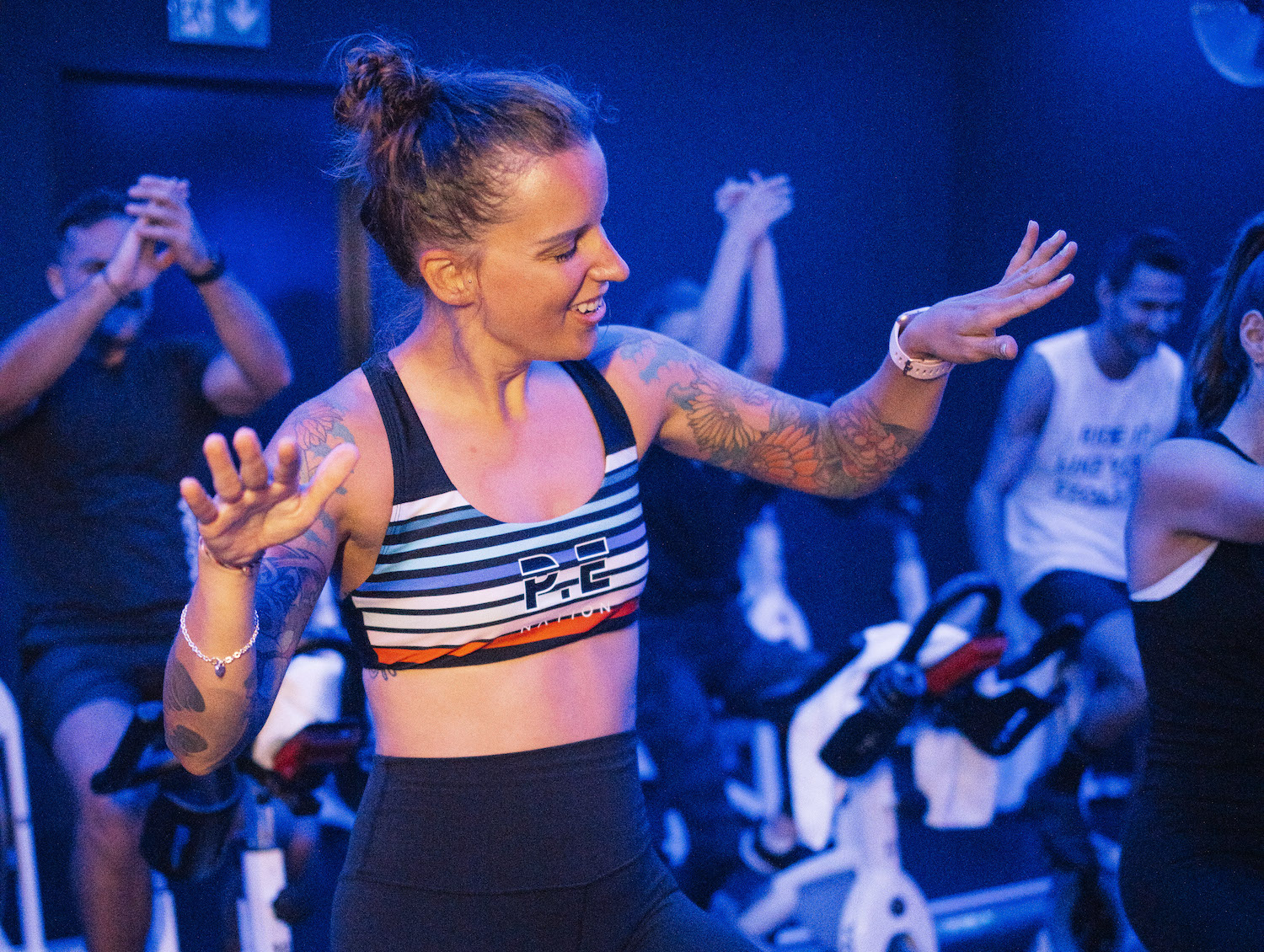What Music Does To Our Minds
by Betty – 13. November 2020
Did you know that some running competitions ban music as it can give runners a competitive edge? Studies from a University in England show that you can improve your workout by 15 percent, just by listening to the right music while exercising.
Music improves athletic performance in two ways: either delay fatigue or increase work capacity. The brain’s neurons can even synchronize with the tempo of the music and this synchronization can help you to perform repetitive motions, like pedalling, faster.
So your favorite jams actually act as natural pain relievers and help you to move more efficiently without you even realizing it!
In this blog post, you can read more about what kind of music enhances your training performance and also find our own Velocity playlist that is guaranteed to take your training to the next level.

Improves Mood Leading to Better Performance
Similar to exercise, music is linked with the release of endorphins and dopamine. According to a study done with electronic and dance music, the participants actively listening to music experienced a boost in mood and alertness. The music alleviates perceived pain and stress resulting in better performance.
Helps with Keeping Pace with the Beat
A study published in the Journal of Sports Medicine and Physical Fitness shows that cyclists who pedalled to the beat of the music required less oxygen consumption than the control group. Synchronizing exercise movements to the beat of the music makes your body use energy more efficiently. Therefore, it is essential to have music with beats per minute (bpm) consistent with the desired pace of the exercise. The sweet spot for cycling is often between 100 to 140 bpm.
The concept of moving to the beat is at the core of Velobeat. However, music is a big part of all classes at Velocity whether that is helping keep the count in Power or speed up the pedalling in Veloburn.
Promotes Better Coordination
Exercising to music can help with motor and movement coordination. This is because music gives your brain a tempo to imitate movement to and move your body more rhythmically. You will be surprised how much your rhythm improves after consistent music-based exercise classes.
Serves as a Distraction
As the fatigue sets in, your body will start sending signals that it needs a break. This is where music comes in a distraction to compete with the physiological feedback the brain is receiving. Music that triggers an overwhelming emotional response is also linked with increased endurance.
Gets you in the “zone”
Your brain associates certain songs to specific memories and channelling that memory allows you to get into the desired zone. Even channelling the emotion the singer is projecting has been shown to improve physical performance.
Calms you down
Although upbeat music does just the opposite, slower music helps to lower your heart rate and reduce anxiety. Playing calmer music during cooldown has been proven to slow down the heart rate faster than if you were without music. Music can also be helpful calming your nerves before a big race or game.

No matter how much you are dreading a workout, a good playlist can influence you to get your body moving. So the best kind of music to exercise is one that you enjoy and can totally immerse yourself in.
If you need inspiration, our coaches always have a perfectly curated playlist that will help you reach your optimal performance!
References:
“How Listening to Music Improves Your Workout”
https://www.soundguys.com/how-music-improves-workout-24816/
“8 Ways Workout Music Improves Your Mood”
https://aaptiv.com/magazine/workout-music-boosts-exercise
“Let’s Get Physical: The Psychology of Effective Workout Music”
https://www.scientificamerican.com/article/psychology-workout-music/
“Effect of music-movement synchrony on exercise oxygen consumption.” J Sports Med Phys Fitness. https://pubmed.ncbi.nlm.nih.gov/22828457/



Protein and Strength: How to Maximize Your Gains
/in Health, Lifestyle, Living in Zug, Living in Zurich, Power/by CaseyGet to Know Your New Velobeat Coach
/in Health, Lifestyle, Living in Zug, Living in Zurich, Power/by CaseyHow to Avoid a Winter Workout Rut
/in Health, Lifestyle, Living in Zug, Living in Zurich, Power/by Casey